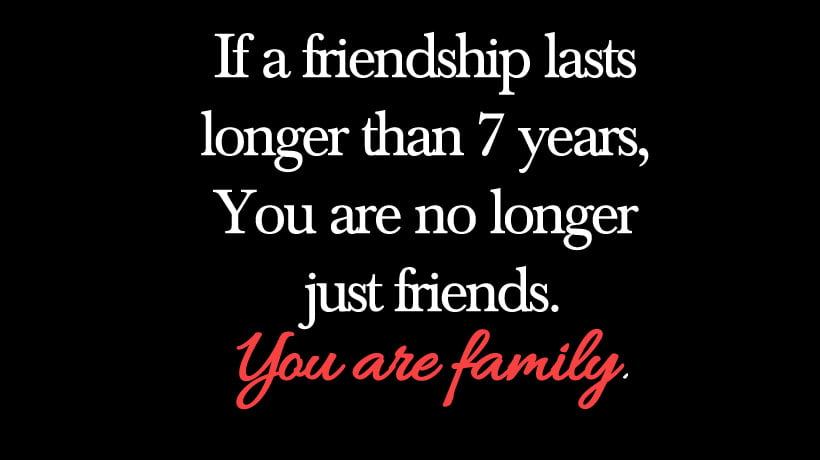As we go throughout our lives, we encounter all sorts of people. Some of them pass through momentarily while others linger. Oftentimes even our best friends from childhood drift away while others become a part of your unofficial family. What makes a friendship withstand the test of time?
You’re both vulnerable
While it makes sense that vulnerability is an essential part of forming a relationship, the friends that stay with us forever are those who are able to reciprocate when we share parts of ourselves. An article by Psychology Today quotes Beverley Fehr – an author and sociologist at the University of Winnipeg – when she states that “The transition from acquaintanceship to friendship is typically characterized by an increase in both the breadth and depth of self-disclosure … One person takes the risk of disclosing personal information and then ‘tests’ whether the other reciprocates” (Karbo, 2006). Friendships that last require both parties to put their hearts on the line.
You’ve established emotional intimacy
Part of being a best friend is knowing that you have someone who accepts you and won’t judge you for your mistakes and failures. You can tell each other about your fears and imperfections because you have established trust and closeness. Sometimes you just need an understanding shoulder to cry on without explanation – a friend who knows your heart isn’t likely to leave anytime soon.
You make time for each other
Maintaining interaction is important in building and keeping meaningful relationships. If you find that you and your best friend are hundreds or thousands of miles away, yet you still manage to call or text each other, you will likely both remain friends for the long haul. Studies show that distance doesn’t matter as long as your interaction remains intact.
Positive vibes
Quality is better than quantity when it comes to best friends. As you get older and your lives get busier, it’s not likely that you’ll be able to see each other as often as you did when you first became friends. When you do get together, it’s important that you both feel positive about the experience. “At the end of the day, the intimacy that makes a friendship thrive must be an enjoyable one, for the more rewarding a friendship, the more we feel good about it, the more we’re willing to expend the energy it takes to keep it alive” (Karbo, 2006).
You’re brutally honest
The friendships that survive the stresses of life and change are those built on authenticity. In both good times and bad, a lasting friendship consists of two people who are willing to express how they are feeling openly and compassionately. Whether it’s a question of fashion or constructive criticism, your best friend is not afraid to tell it how it is.
You show appreciation
Just as in any relationship, it’s important to show appreciation to the ones you care about. Not only does it reinforce that the other person is important to you, studies suggest that when we are generous towards a person, we value them more than those who are generous towards us. True friends know the significance of appreciating one another.
You repair rifts early on
The key to staying friends for a long time is recognizing that you’re only human. Forever friends aren’t afraid to be the first one to say “I’m sorry” when someone has messed up. They are quick to forgive and also quick to repair and talk about anything that could pose a threat to your friendship.
The bottom line is, it takes two to tango. If you want a friendship that will last a lifetime, incorporate these attitudes into your relationships. Be the friend you want to be and you will make fulfilling relationships for the rest of your life.
Sources:
Firestone, D. L. (2013, January 22). 5 Ways to Maintain Lifelong Friendships. Retrieved February 2018, from Psychology Today: https://www.psychologytoday.com/blog/compassion-matters/201301/5-ways-maintain-lifelong-friendships
Karbo, K. (2006, November 1). Friendship: The Laws of Attraction. Retrieved from Psychology Today: https://www.psychologytoday.com/articles/200611/friendship-the-laws-attraction



